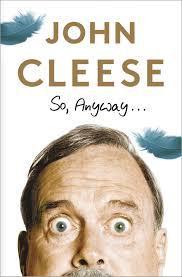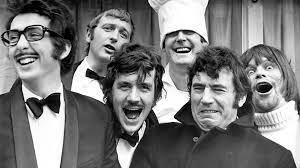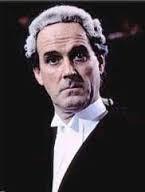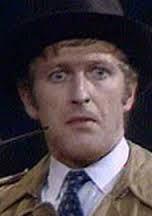 John Cleese’s memoir, So, Anyway, says, “I know this book is supposed to be an autobiography, but the fact is that most of you don’t give a tinker’s cuss for me as a human being or feel for the many different forms of suffering that make me so special. No, you are just flipping through my heart-rending life story in the hope of getting a couple of good laughs, aren’t you?”
John Cleese’s memoir, So, Anyway, says, “I know this book is supposed to be an autobiography, but the fact is that most of you don’t give a tinker’s cuss for me as a human being or feel for the many different forms of suffering that make me so special. No, you are just flipping through my heart-rending life story in the hope of getting a couple of good laughs, aren’t you?”
Yes, I was. But any fans looking to revisit Monty Python’s Flying Circus and Fawlty Towers probably will be disappointed.

Nevertheless, Cleese does provide some good laughs. The quoted paragraph made me laugh out loud. And the antecedents of the dead parrot sketch, among others, are explained. Yet this is mainly a straight personal memoir (with no suggestion of co-authorship or writing help), chronicling not just Cleese’s early comedy career but his broader experience of human life, and how his career fit into it. The emphasis is very much on the person rather than the performer.

Speaking of male-only, here’s an eye-opener. Starting at university, Cleese was a close friend of Graham Chapman (the future Python), they collaborated on projects, and even spent some weeks living together in Ibiza to write a film script.

Graham Chapman
Yet, when Graham finally came out as gay, Cleese writes, “I was very, very, very, very, very, very, very, very, very, very, very surprised.” (His emphasis, and his eleven veries.) But this was the 1960s, and tells us what a different planet that was. Homosexuality was so stigmatized that gays took great pains to conceal it.
The book does reprise some comedy bits, but not merely for yuks; its main theme is what goes into producing good comedy. Cleese quotes Sir Henry Irving, asked on his deathbed whether dying is hard: “No, dying is easy. Comedy is hard.” A real talent like Cleese can make it look easy, on the TV screen – but the book’s big take-away is how much art, and sweat, goes into it.
Like so many things in life, it should not be taken for granted, but cherished.
